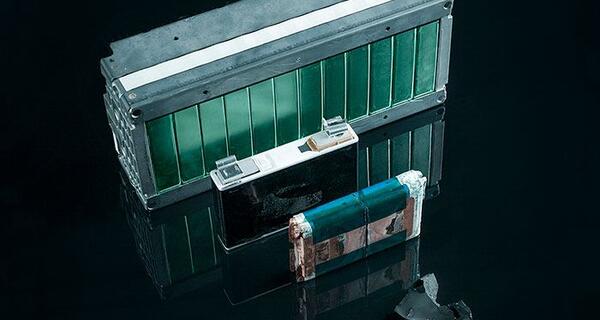
Europe has a great opportunity to capture a share of the global market for batteries manufacturing and become an important player. Currently, only a minor share of the batteries manufacturing takes place in Europe (3% of global production). In this paper we give our opinion on industrial batteries, in particular batteries of the Li-ion type. Batteries are likely to be a key to sustainable mobility and to the integration of renewable electricity generation in the grids. Having a strong battery value chain is of strategic value and importance for Europe as well as for our industry.
Fortum is involved in several parts of the batteries value chain
Fortum is active in several parts of the value chain: we use batteries for energy storage, we provide charging stations for Electric Vehicles (EV), and we are currently developing a larger scale recycling solution for Li-ion batteries. The aim is to be an important supplier of secondary raw materials in batteries manufacturing.
We use a non-thermal, low-carbon emission recovery process to recover scarce materials from Li-ion batteries. The non-thermal recovery process makes it possible to reduce CO2 emissions compared to traditional thermal recovery.
EU has so far endeavoured policy developments supporting the establishment of battery manufacturing in the EU and in securing the supply of critical raw materials in Europe. Less attention has been put on the role of safe logistics and the recycling of worn-out batteries in the circular economy. With this position paper we want to give this aspect more visibility by proposing actions that we believe would support the development of the battery life cycle services in the circular economy in Europe.
Key messages
- Batteries are likely to be a key to sustainable mobility and to the integration of renewable electricity generation in the grids. Having a strong battery value chain is of strategic value and importance for Europe as well as for our industry.
- The EU should consider developing legislation that supports a low environmental footprint throughout the batteries value chain, including recycling.
- The EU should take measures to prevent used batteries from leaking out from the EU by setting up an effective control mechanism for the exports of used batteries in order to secure the future supply of critical raw materials.
- EU legislation must support improved design for reuse and recycling, including safety precautions, information about battery chemistries, and health status[1]
- The EU needs to address the inconsistencies in the classification of Li-ion batteries in the EU Waste Directive, the Battery Directive and the Waste Shipment Regulation, and issue guidance in order to avoid different practices of the regulations, which hampers the movement of waste batteries aimed for recycling within EU.
- The EU should increase the recycling rate target for industrial Li-ion batteries. The current general recycling target rate of 50% is far too low for industrial Li-ion batteries. In order to eliminate the waste of any resources, the European Commission should consider increasing the recycling target rate for industrial Li-ion batteries to about 80% in the near future.
- The EU should consider targets for the uptake of recycled raw materials in the manufacturing of new batteries.
[1] Health status means the condition of the capacity of the battery, i.e when it is new the available capacity is 100% but as the state of health (SOH) decreases also the available capacity decreases.